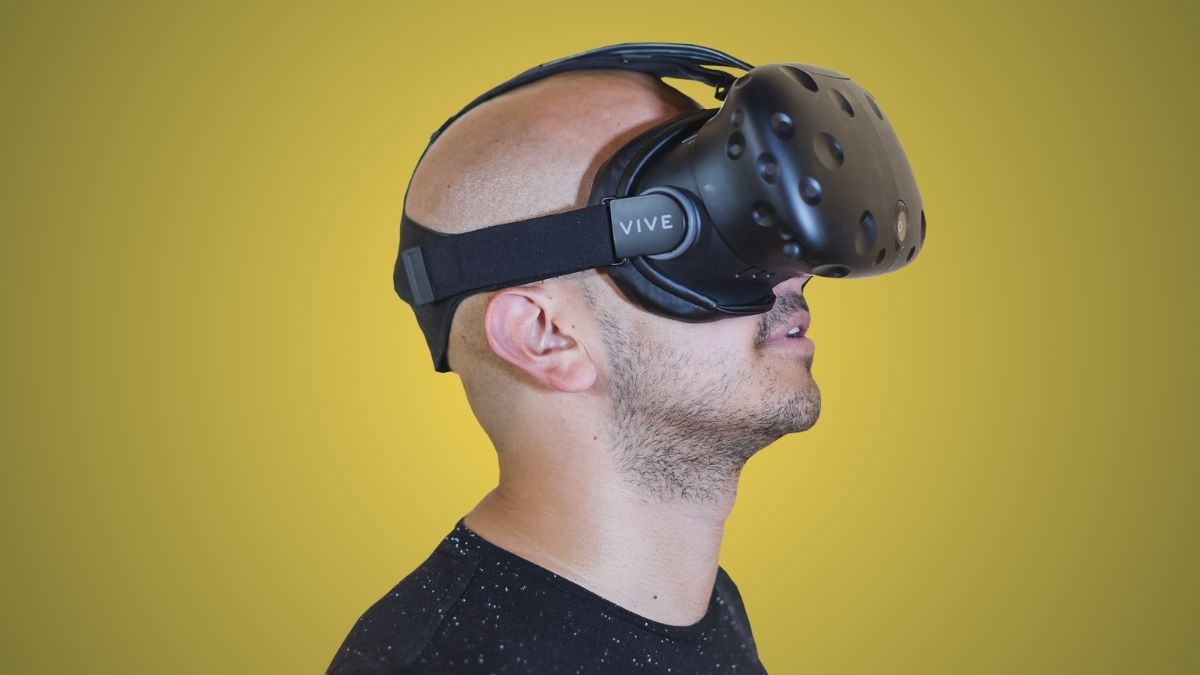New research by the arts access charity, in partnership with technology consultants Peak Signal, has outlined six considerations for artists using ‘augmented reality’ in their work to make it accessible to deaf and hard-of-hearing people.
The white paper traces a number of theatrical events using virtual reality (VR) in recent years – including the immersive experience based on Jeff Wayne War of the Worlds score currently playing in London and at the National Theatre All Varieties of Limbo which premiered as a VR show in 2022.
In November, HOME Manchester used mixed reality (MR) to Museum of Austerityan installation he described as a “striking holographic gallery”.
Both VR and MR fall under an umbrella term known as extended reality (XR), along with augmented reality or “AR”.
Stagetext’s white paper – titled Improving accessibility for deaf audiences in augmented reality theater productions and published on Tuesday – says the charity sees the development of XR performances as “an opportunity for access to be considered and incorporated at the earliest stage”, with the technology presenting “unique accessibility considerations” for creatives working with such formats .
The study reviewed previous research on the accessibility of immersive experiences, including the BBC’s 2018 white paper on Exploring subtitle behavior in 360° video (which concluded “making subtitles easy to locate without restricting the viewer’s ability to explore the scene are essential”) and the EU-funded Immersive Accessibility project (which identified “spoken subtitle signaling” as an issue to consider).
Stagetext and Peak Signal’s “gap analysis” revealed that current processes do not “indicate where a caption should be positioned in relation to virtual space” or include “a method to alert viewers when significant action is occurring outside their immediate field of sight”.
Other issues concerned the potential to lose “critical elements” of a performance without “adequate notices”; ensuring subtitles “follow the viewer’s gaze and stay within their line of sight”; and the lack of a mechanism to track where a member of the public is looking.
In the paper’s ‘concepts’ or recommendations, Stagetext and Peak Signal write: ‘Research from BBC Research and Development highlights potential problems with VR sickness caused by static text in a moving virtual environment. […] Unlike static subtitles, those in immersive theater must dynamically adapt to the user’s visual field and the context of the virtual stage.
“Subtitles anchored to specific objects or characters in the virtual world ensure synchronization with relevant elements, improving user understanding and engagement.
“To address cases where users are looking away from the referenced object, implement additional fixed-position or ‘placeholder’ guidance mechanisms and captions.” This ensures that critical information remains accessible regardless of the user’s focus.”
In addition to “concepts”, Stagetext also warns against automatically generated subtitles which it says “tend to be less accurate and therefore of lower quality”, saying that performers should write subtitles in advance.
Melanie Sharpe, CEO of Stagetext, said: “By sharing these findings, artists and theatre-makers can rely on our research to create wonderful works of art that are accessible to deaf, hard-of-hearing people.
“With new figures showing that one in three adults in the UK is deaf, hard of hearing or hard of hearing, considering access early in planning an augmented reality performance is essential.”
Peak Signal’s Paula Mathews added: “This research highlights the importance of integrating accessibility from the outset, ensuring that all members of our audience can fully experience the magic of all forms of theatre.”
The full white paper is available to download and read on the Stagetext website.
#Subtitles #virtual #reality #anchored #objects #fixed #Stagetext #paper

